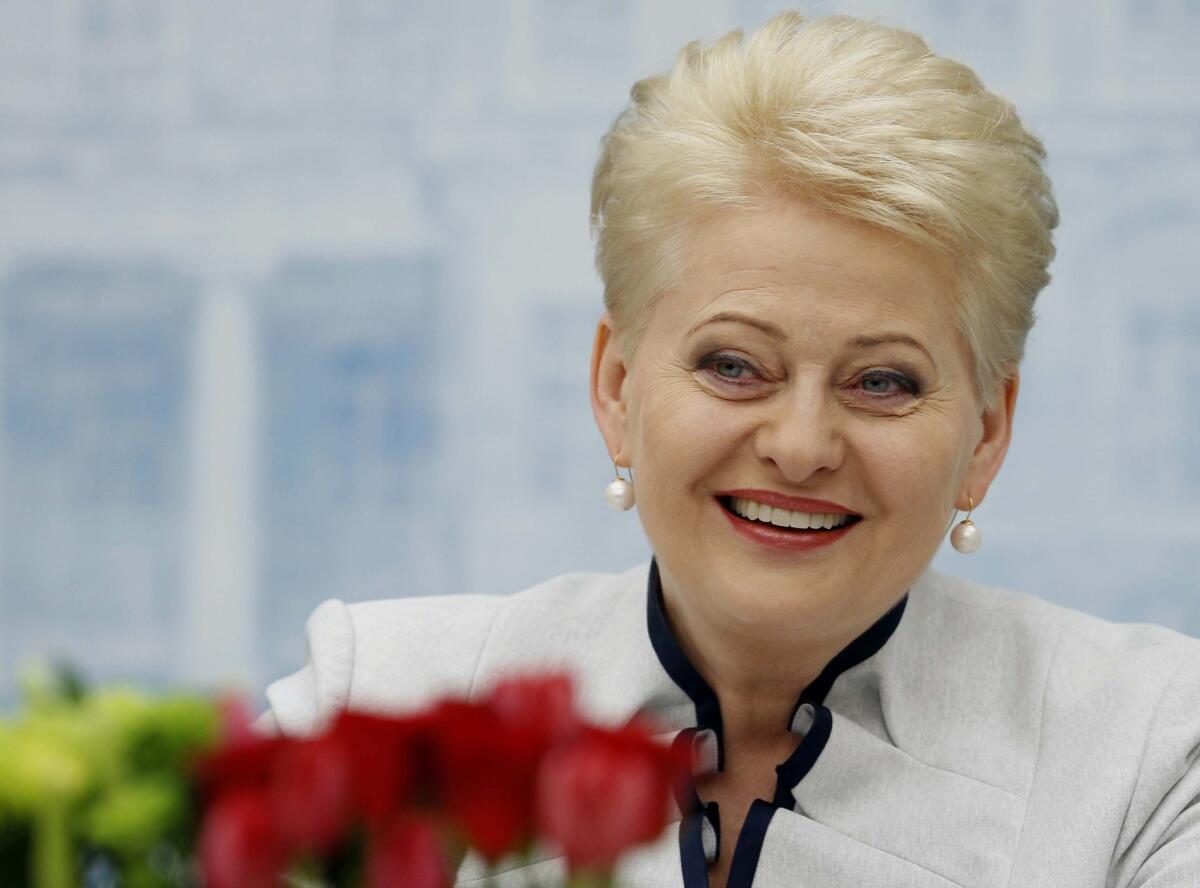European Commission: Lithuania ready to join Eurozone in 2015

- Share via
Lithuania will become the 19th nation to adopt Europe’s common currency next year when it joins its Baltic sister republics in the Eurozone.
The European Commission announced Wednesday that the former Soviet republic that failed to meet Eurozone entry criteria in its bid eight years ago had brought inflation, debt and other economic health indices within European Union parameters and is now ready to integrate into the community of euro users.
“Lithuania’s readiness to adopt the euro reflects its long-standing support for prudent fiscal policies and economic reforms,” Commission Vice President Olli Rehn said in a statement from Brussels. Reform undertaken since the country joined the European Union a decade ago “has led to a striking increase in Lithuanians’ prosperity.”
Rehn said the country’s per capita gross domestic product has risen over the last 20 years from just 35% of the average of the 28 states now members of the EU to a projected 78% next year.
Lithuania had applied eight years ago to join the Eurozone but just barely exceeded the inflation ceiling allowed. Price increases continued to plague the country, pushing inflation to 12.5% in 2008. The commission report said that by last month inflation had been tamed to 0.6%, well below the maximum range of 1.1% to 1.7% for Eurozone members.
The commission’s recommendation for Lithuania’s inclusion in the Eurozone is pending approval of the EU Council of Ministers at a gathering next month but was considered a foregone conclusion.
Lithuanian President Dalia Grybauskaite, who fought against a vociferous anti-EU lobby to get the country into the Eurozone, hailed the commission’s decision as proof that the Baltic nation “deserves to be in the club of the strongest.”
Vitas Vasiliauskas, central bank governor in the country of 3 million, forecast that Lithuania could add 2 percentage points over the next seven years to its projected GDP expansion of 3.3% this year.
Lithuania’s embrace of the euro, which has been battered by members’ debt and banking crises during undulating periods of recession over the last seven years, provides a boost of confidence for the common currency, as do the pending applications to join seven other European states.
The commission report issued Wednesday said none of the other applicant states -- Bulgaria, the Czech Republic, Croatia, Hungary, Poland, Romania and Sweden -- had satisfied all criteria for membership in the Eurozone. Rehn noted that their performances would be reassessed in two years’ time.
The other two Baltic republics that became independent after collapse of the Soviet Union in 1991, Estonia and Latvia, are already Eurozone members.
More to Read
Sign up for Essential California
The most important California stories and recommendations in your inbox every morning.
You may occasionally receive promotional content from the Los Angeles Times.














